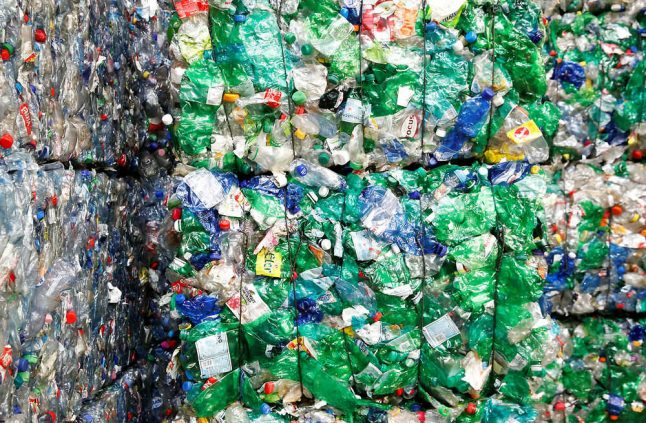“The EU must find circular and climate-friendly ways of managing its plastic waste e.g. by increasing reuse and recycling,” the EEA said in a statement.
The European body, headquartered in Copenhagen, said the EU produced 30 million tonnes of plastic waste in 2015, of which only 17 percent was collected for recycling.
Conversely in 2017, demand for plastic in the 28 EU countries, Switzerland and Norway, amounted to 51 million tonnes — mainly for use in packaging and construction.
Annual global plastic production is also expected to double by 2035, and almost quadruple by 2050, and European countries lack the capacity to manage the growing amount of plastic waste in sustainable ways, one of the reports concluded.
“Poor management of plastic waste has negative environmental and climate effects, such as deposits of plastic and microplastics appearing on land and in rivers and oceans worldwide,” the agency stated.
In early 2019 the EU exported 150,000 tonnes of plastic waste every month, since European countries typically don't sort and recycle enough of this waste.
The figure was twice as high in 2016, when exports went mainly to China and Hong Kong, but restrictions on waste import has lead to a decrease and a shift of exports to other Asian countries with less strict regulations.
When it comes to electronics, of 10.3 million tonnes of waste produced in 2015, 40 percent was collected, the agency said.
Many electronic products include hazardous materials and chemicals that pose risk to both health and the environment.
The EEA also noted that “high-quality recycling” can help to limit the impact on climate, citing a 2016 Norwegian study that found that the recycling of a single mobile phone saved the equivalent of one kilogram of CO2 emissions.
READ ALSO: European cities to take tips from Oslo on cutting out plastic



 Please whitelist us to continue reading.
Please whitelist us to continue reading.
Member comments